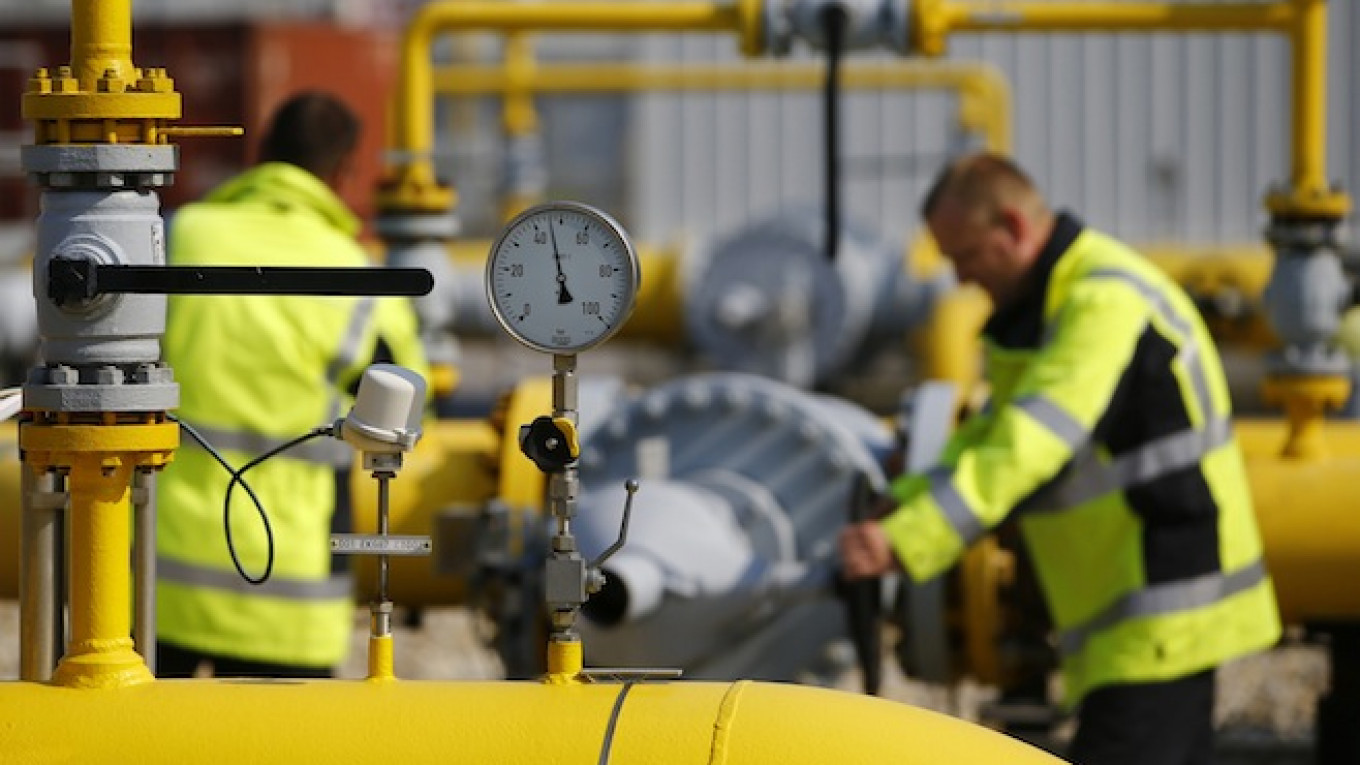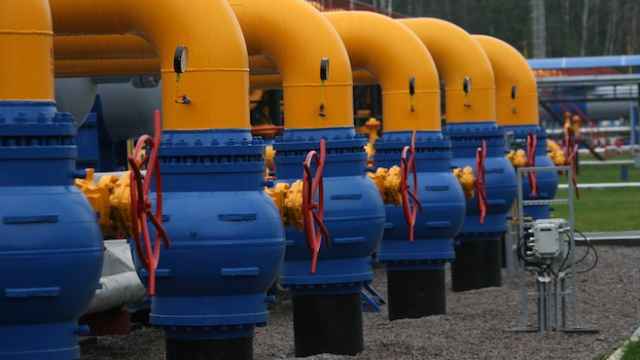Russia's energy minister said Tuesday he hoped to reach a deal in a gas dispute with Ukraine this week, but Kiev must pay some of its large debts before Moscow resumes gas supplies.
Kiev is under pressure from the European Union, which is mediating the talks and worried about possible disruptions to its own supplies, to agree on a price for the Russian gas and accept a timetable for paying $5.3 billion in gas debts.
Efforts to end the row have collapsed at the last minute several times, and are complicated by a wider political crisis between Moscow and Kiev, but prospects of securing a deal have risen since progress was made at talks last week in Berlin.
Russia halted gas flows to Ukraine in June because of the dispute but said it would continue to supply the rest of Europe, which receives about a third of its gas needs from Russia, some 40 percent of which is pumped via Ukraine.
Visiting the Kazakh city of Atyrau with President Vladimir Putin, Energy Minister Alexander Novak said he expected new talks with Ukraine on Thursday or Friday and one of the main issues to resolve was the timetable for Kiev to pay its debts.
"It is a matter of principle for us that part of the debt should be redeemed before the (gas) supply starts," Novak told reporters.
"We have no differences over the numbers on the whole. We agree that they pay $3.1 billion (to start with). But there are some issues which are not completely resolved, related to timetables, which I hope will be removed this week."
Moscow wants Kiev to make the initial $3.1 billion debt payment in two tranches — $2 billion before the gas flows restart and $1.1 billion by the end of this year.
But Novak said Ukraine wanted to pay in three tranches of $1.5 billion, $0.8 billion and $0.8 billion and wanted to make the payments only after gas flows resume.
Alexei Miller, head of state-run gas exporter Gazprom, said Saturday that the low volumes of the fuel in Ukrainian gas storage facilities meant there was a possibility of disruptions in supplies to Europe this winter.
Miller's comments maintained pressure for a deal following the talks in Berlin at which European Energy Commissioner Guenther Oettinger said an interim price being discussed for Kiev was $385 per cubic meter.
Winter Shortages Loom
Ukraine faces the possibility of energy shortages this winter if no deal is reached with Russia, especially as Hungary's gas pipeline operator said Friday it had suspended shipments to Ukraine as well.
The gas dispute flared after Moscow-leaning President Viktor Yanukovych fled Kiev in February following months of street protests following his decision to spurn a trade pact with the EU and turn back towards Russia instead.
After Yanukovych was ousted, the new Kiev authorities set course again for Europe and Gazprom increased the gas price to $485 per 1,000 cubic meters from the rate of $268.5 which Ukraine had paid in the first quarter.
Kiev has so far recognized the price of $268.5 only for gas that had already been supplied.
Ukraine's state-owned energy firm, Naftogaz, has filed a lawsuit at the international arbitration court in Stockholm to establish a "fair and market price" for natural gas supplies from Gazprom.
Tensions are high between Moscow and Kiev over a separatist rebellion in eastern Ukraine, in which the Ukrainian authorities accuse Russia of directly backing the armed rebel fighters, and over Russia's annexation of the Crimea peninsula in March.
Moscow denies supporting the rebels militarily and is wary of Kiev's moves to deepen ties with the EU. Russia's relations with the EU are also strained because of sanctions imposed on it over its role in the Ukraine crisis.
EU regulators are also investigating Gazprom for anti-competitive behavior, including in relation to gas pricing.
Keeping up pressure on Moscow, German Chancellor Angela Merkel said on Monday there were good reasons to continue the EU energy partnership with Russia for now but that might change if it continued to violate "basic principles," referring to issues of national sovereignty.
A Message from The Moscow Times:
Dear readers,
We are facing unprecedented challenges. Russia's Prosecutor General's Office has designated The Moscow Times as an "undesirable" organization, criminalizing our work and putting our staff at risk of prosecution. This follows our earlier unjust labeling as a "foreign agent."
These actions are direct attempts to silence independent journalism in Russia. The authorities claim our work "discredits the decisions of the Russian leadership." We see things differently: we strive to provide accurate, unbiased reporting on Russia.
We, the journalists of The Moscow Times, refuse to be silenced. But to continue our work, we need your help.
Your support, no matter how small, makes a world of difference. If you can, please support us monthly starting from just $2. It's quick to set up, and every contribution makes a significant impact.
By supporting The Moscow Times, you're defending open, independent journalism in the face of repression. Thank you for standing with us.
Remind me later.






